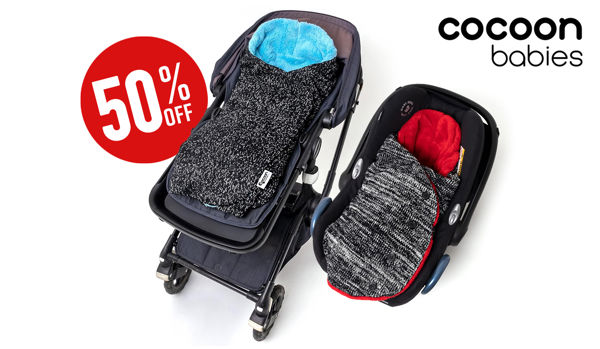Ladies, let's get real for a moment because we're about to tackle a topic that often goes unspoken about – the legendary "first poo" after giving birth.
Right, so you've conquered childbirth like a superhero, but when it comes to dropping a deuce, you might feel pretty apprehensive or even downright terrified. We hear you.
Your First Poo After Giving Birth
Your first poo after birth might not be something you think about until the time comes. A lot of us are more concerned with the prospect of pooing during the birth, which of course, if it happens, chances are you won’t give a shit, quite literally. The midwives clear these things up so quickly that you probably won’t even notice it’s happened. But what happens after – well, yeah. That can be a bit of an event.
Postpartum bowel movements (the official term for your first poo after giving birth) are different for everybody. Generally speaking, it’s normal for new mums to experience a bit of a delay after the baby is born. And that kind of works well because thinking about having a poo straight after you’ve had your baby is a really scary idea, especially if you’ve had stitches from either a vaginal or C-section birth.
Reasons for the Delay
First off, your pelvic floor has just been through the wringer, which can lead to your intestines holding on to their precious cargo a bit longer before making a grand entrance (or should I say exit?). The stress hormone cortisol also gets a starring role in the postpartum show and can lead to a “lockdown” in your plumbing or give you a fast pass to the bathroom.
You might also be dealing with haemorrhoids. Yes, those pesky piles are sure to put a spanner in the works. And you’ll also need to factor in the anaesthesia and pain meds you may have taken during birth. All will likely contribute to a bit of a log jam.
It’s Normal To Feel Scared
I was petrified about going for a number two after my first C-section. I thought I would split in two just getting off the bed for the first time, let alone squeezing one out. It’s normal to feel as though your stitches might burst, but it’s so unlikely. Even if you haven’t had stitches, you’ll probably be feeling pretty sore, and the thought of releasing the Kraken might be a little too much to bear.
Having spoken to my mates, it’s safe to say there’s a lot of fear surrounding the first poo after birth, so don’t worry, you’re not on your own. Constipation is normal and hopefully short-term; however, it’s something to keep an eye on.
Besides the fear of going - leading to resisting the urge and actually avoiding going, constipation can be caused by dehydration or changes in your diet, which is pretty much par for the course if you’re in hospital for a couple of days. Yep, you’re getting it; the odds are stacked against us here!
Don’t worry. There are a few easy things you can do to make the whole process a lot easier so when you do finally lay that cable, all is well with the world.
Keep Hydrated and Eat Well
Make sure you’re drinking lots of water. Always. It's a general rule of life, really, but especially when you’re pregnant and ready to give birth/have given birth.
Breastfeeding can be particularly dehydrating, so it’s time to up that H20 intake!
Eat a Balanced Diet
Try to keep on top of what you’re eating. It can be tempting to buy junk from the hospital shop (hey, no judgment here. After gestational diabetes, my hospital bag was stuffed full of Cadbury’s Mini Eggs), but keep up with the good stuff. Eat plenty of fresh fruit, veggies, salads, wholegrain cereals and wholemeal bread.
Stool Softeners/Laxatives
If constipation has been an issue during pregnancy (oh, yes, that’s a whole other blog post - click here for more information on constipation in pregnancy), or you’re really struggling to have a poo after giving birth, your doctor or midwife can prescribe a laxative or a stool softener, such as lactulose or Fybobel.
Fybogel is a bulk-forming laxative that’ll make your stools softer and easier to pass, whereas lactulose draws water into the bowels to soften the stools. They may give you both at once. In my experience, Fybogel worked best, but I did have both after my first C-section. In fact, I’m pretty sure I was on three. Yeah, poor me, I really suffered.
Look After Your Bits
Yep, we’re talking about perineal care. My Expert Midwife does a great range of products to help in this department. Not so essential after a C-sec (I had the Spritz Your Bits but never used it), but if you’ve had a vaginal birth, a product like this can be a godsend.
Don’t Push Too Hard
So, two to three days after you’ve given birth, your body might be feeling ready to answer the call of nature. Take it easy and make time for it.
Your first poo after birth might be hard to pass. Don’t strain or push too hard.
Now, I know I mentioned that the splitting of stitches was a pretty low concern, but it’s best to go gently to avoid discomfort or any complications. The NHS recommends holding a pad of clean tissue over your stitches when pooing – just for peace of mind.
When To Get Help
Don’t be afraid about getting help at any point during this journey; don’t suffer in silence, no matter how awkward the problem might be. If you experience severe pain or bleeding during your first poo after giving birth, seek medical help immediately.
Your midwife, health visitor, or GP are on hand to help.
And there you have it! The not-so-glamourous side of post-baby life.
Remember, these changes are a natural part of the fourth trimester. Your body needs time and a little TLC. If constipation becomes a recurring theme, ask for help.
You can be on a softener long-term until your body adjusts back to normality. And a top tip from me: Weightworld's Bio Cultures Complex probiotic is an excellent way of keeping regular after birth.
However, check with your health practitioner before taking a new supplement, ESPECIALLY if you’re breastfeeding.







